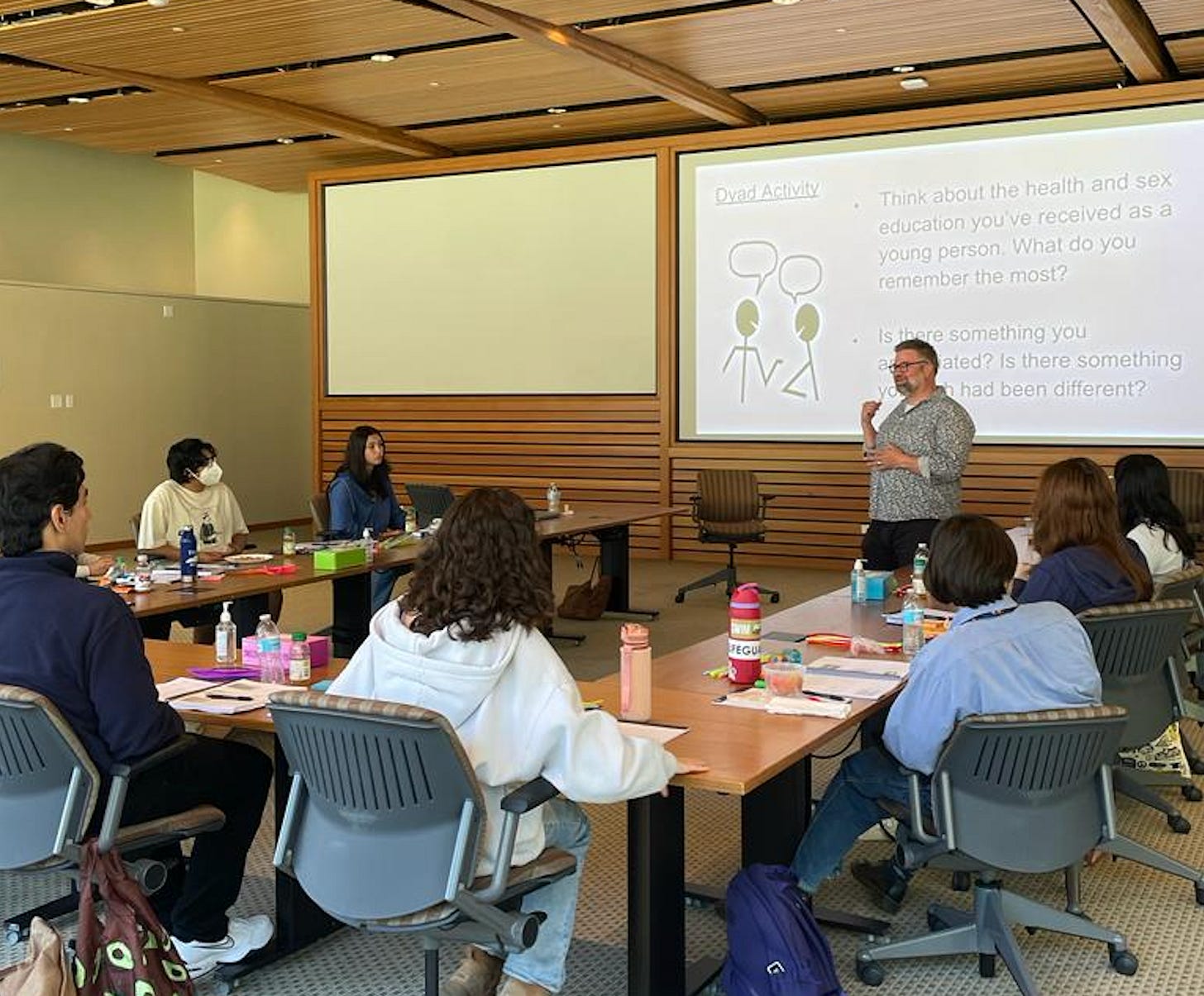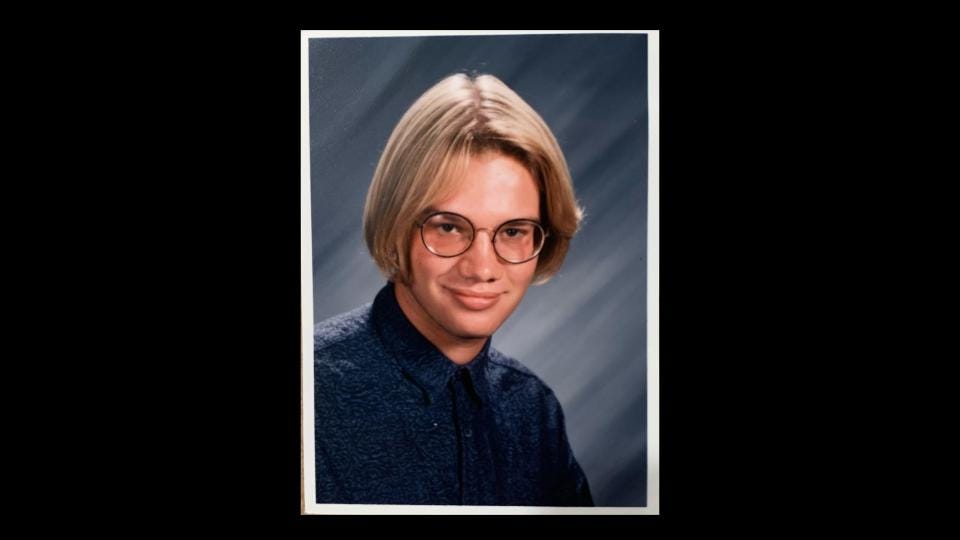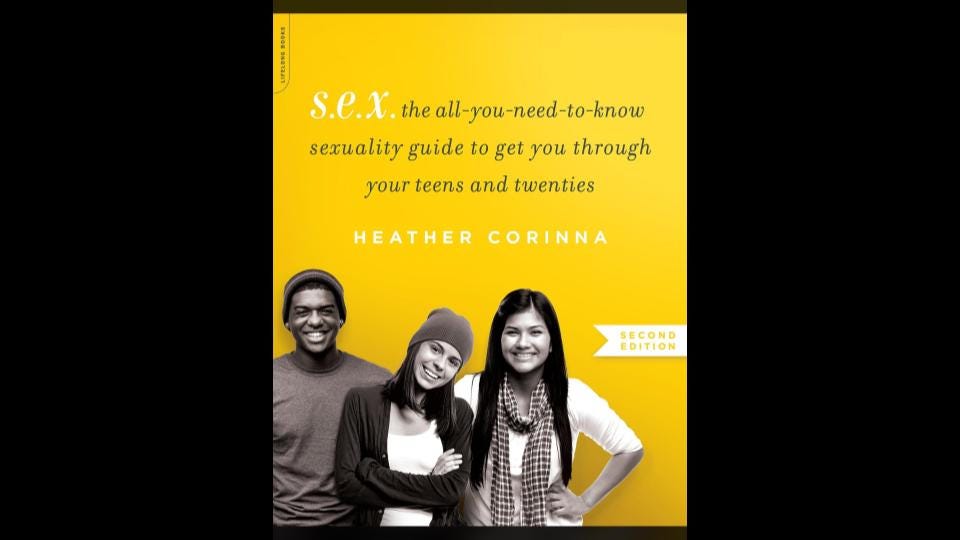How To Help Teenagers Become Sex Ed Experts
Young people can provide crucial knowledge and support to their peers
Hey Teenagers, We Could Use Your Help
When I’m meeting with students, one of the talks I like to give is called “How To Become The Sex Ed Experts Your Community Needs.”
I explain how much we rely on trusted people in our communities who can convey health information reliably without exaggerating or stoking fear. This need is becoming even more important now, when conspiracy theories and misinformation are spreading through society at a breakneck pace.
We discuss how often - especially when sensitive issues come up - young people turn to their friends and classmates for support. With the right information and skills, teens can be powerful advocates and allies for one another.
I also explain that when people get good at providing sex education, they develop skills that are transferable to a wide variety of interesting, rewarding careers. I encourage teenagers to think about jobs in public health, education, mental health care, coaching, advocacy, and social work, as well as online work in media and communication. If there are boys in the audience, I make a special point to say that, as Richard V Reeves points out, we need lots more men in HEAL (Health, Education, Arts, and Literacy) professions.
Sharing My Own Story
I like to start by talking a little about my own career path, which started when I was their age (and my hair was significantly longer!)
When I was a senior in high school, a close friend of mine told me about how she’d been sexually assaulted. Her story was grueling, and it affected me deeply. I promised myself I would try to do something to change things, and the next year when I arrived at the University of Missouri-Columbia for my first year of college, I started volunteering in the Rape Education Office.
Because I was one of the few male volunteers, I was often tasked with talking to other young men in classes, dorms and fraternity houses. That experience really taught me the value of peer education as an effective way to reach young people.
That was more than 30 years ago, but it had a big effect on my life. Now I spend my days doing things like:
Teaching
Recruiting and coaching new teachers
Writing lesson plans
Doing interviews for podcasts, print, and TV
Giving conference presentations
Talking to parents
Over time, I’ve started to get used to people calling me an “expert.”
And that leads me to the call to action I issued to these teens:
I want YOU to become an expert, too.
I Ask Students To Share Their Own Sex Ed Experiences
Sometimes the best way to connect with others is through stories, and sex ed stories often really get people talking. Here are some of the prompts I used when asking these teens to share with their peers:
Think about the health and sex education you’ve received as a young person. What do you remember the most?
Is there something you appreciated? Is there something you wish had been different?
After I shared a little information about what schools are supposed to be covering, I followed up with some additional prompts:
How well do you think your middle and high school did at meeting these requirements?
What are some changes you’d like to see in your local schools?
What ideas do you have for helping put those changes into place?
Where could you go for support with this effort?
We then talk about how a lot of learning about sexuality and relationships happens outside of the classroom.
When I asked these teens “How do you see peers educating each other about relationships and sexuality?” I heard a wide variety of answers, including 1-on-1 conversations, texting, and TikTok.
We Share Quality Resources
Part of becoming an “expert” is learning where to go for reliable information.
We talk about how people can learn a lot online, but their peers might need guidance about avoiding misinformation. We look at a selection of online resources, including Amaze.org, Planned Parenthood, SexEdToGo, Scarleteen, and SexEdFiles on TikTok and Instagram.
I encouraged them to always look at a variety of sources, including books like Heather Corinna’s S.E.X.: The All-You-Need-To-Know Sexuality Guide To Get You Through Your Teens And Twenties.
We Talk About Sex Ed Changes And Challenges, And How Youth Can Get Involved
I like to talk about some of the ways that sex education has changed in recent years. When talking to youth in California, here are some things I highlight:
The California Healthy Youth Act - This law requires that schools provide comprehensive sexuality education for students in grades 7-12 at least once in middle school and once in high school. This change has led many districts across California to revise their health education policies.
Affirmative Consent - SB 695 requires public high schools to develop curriculum that covers “yes means yes,” the consequences of sexual violence and how to develop healthy peer relationships built on mutual respect.
The Menstrual Equity For All Act - This law requires all middle and high schools to provide free and accessible menstrual products — both pads and tampons — in all women’s restrooms and all-gender restrooms, and in at least one men’s restroom.
I also like help students find leadership opportunities in this work. Here are a few that I know about right now:
SafeBae trains young people to prevent sexual violence among middle and high school students. Applications are open for its 2025 Summer Activist Institute.
Sex Etc., the sex ed website created for teens by teens, is looking for writers.
EducateUs, the incredible sex ed advocacy organization, is looking for people between 16 and 22 to join its Youth Advisory Board.
There are also often summer jobs and internships available in local nonprofits, clinics, and advocacy organizations - I encourage youth to take a look around or call organizations directly.
Reminder: This is a great time to preorder TALK TO YOUR BOYS, the book I cowrote with Joanna Schroeder! Preorders mean a lot in the book publishing world.
If you enjoyed this post, please forward it to someone else who might like it, and click the ❤️ or 🔁 button on this post so more people can discover it on Substack. Thanks!








